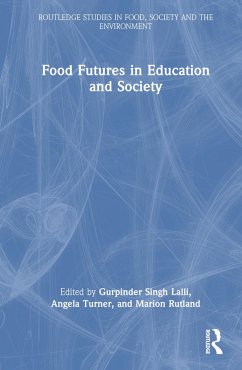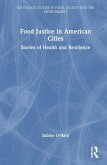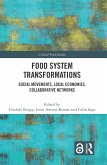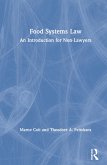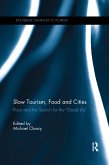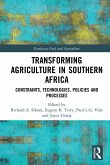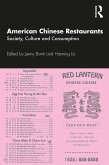Food Futures in Education and Society
Herausgeber: Lalli, Gurpinder Singh; Rutland, Marion; Turner, Angela
Food Futures in Education and Society
Herausgeber: Lalli, Gurpinder Singh; Rutland, Marion; Turner, Angela
- Gebundenes Buch
- Merkliste
- Auf die Merkliste
- Bewerten Bewerten
- Teilen
- Produkt teilen
- Produkterinnerung
- Produkterinnerung
This book brings together a unique collection of chapters to facilitate a broad discussion on food education that will stimulate readers to think about key policies, recent research, curriculum positions and how to engage with key stakeholders about the future of food.
Andere Kunden interessierten sich auch für
![Finding Meaning in Wine Finding Meaning in Wine]() Michael SinowitzFinding Meaning in Wine195,99 €
Michael SinowitzFinding Meaning in Wine195,99 €![Food Justice in American Cities Food Justice in American Cities]() Sabine O'HaraFood Justice in American Cities195,99 €
Sabine O'HaraFood Justice in American Cities195,99 €![Food System Transformations Food System Transformations]() Food System Transformations195,99 €
Food System Transformations195,99 €![Food Systems Law Food Systems Law]() Marne CoitFood Systems Law195,99 €
Marne CoitFood Systems Law195,99 €![Slow Tourism, Food and Cities Slow Tourism, Food and Cities]() Slow Tourism, Food and Cities68,99 €
Slow Tourism, Food and Cities68,99 €![Transforming Agriculture in Southern Africa Transforming Agriculture in Southern Africa]() Transforming Agriculture in Southern Africa196,99 €
Transforming Agriculture in Southern Africa196,99 €![American Chinese Restaurants American Chinese Restaurants]() American Chinese Restaurants196,99 €
American Chinese Restaurants196,99 €-
-
-
This book brings together a unique collection of chapters to facilitate a broad discussion on food education that will stimulate readers to think about key policies, recent research, curriculum positions and how to engage with key stakeholders about the future of food.
Hinweis: Dieser Artikel kann nur an eine deutsche Lieferadresse ausgeliefert werden.
Hinweis: Dieser Artikel kann nur an eine deutsche Lieferadresse ausgeliefert werden.
Produktdetails
- Produktdetails
- Verlag: Routledge
- Seitenzahl: 322
- Erscheinungstermin: 11. Juli 2023
- Englisch
- Abmessung: 240mm x 161mm x 22mm
- Gewicht: 649g
- ISBN-13: 9781032280219
- ISBN-10: 1032280212
- Artikelnr.: 67517104
- Herstellerkennzeichnung
- Libri GmbH
- Europaallee 1
- 36244 Bad Hersfeld
- gpsr@libri.de
- Verlag: Routledge
- Seitenzahl: 322
- Erscheinungstermin: 11. Juli 2023
- Englisch
- Abmessung: 240mm x 161mm x 22mm
- Gewicht: 649g
- ISBN-13: 9781032280219
- ISBN-10: 1032280212
- Artikelnr.: 67517104
- Herstellerkennzeichnung
- Libri GmbH
- Europaallee 1
- 36244 Bad Hersfeld
- gpsr@libri.de
Gurpinder Singh Lalli is Reader in Education for Social Justice and Inclusion at the University of Wolverhampton, UK. He is sole author of Schools, Food and Social Learning (Routledge, 2019), co-editor of School Farms: Feeding and Educating Children (Routledge, 2021) and sole author of Schools, Space and Culinary Capital (Routledge, 2023). Angela Turner is an adjunct senior lecturer in Design and Technology in the Faculty of Education at Southern Cross University, Australia. She is the co-editor of International Perspectives of Food Education in the School Curriculum (2020). Marion Rutland is an honorary research fellow at the University of Roehampton, UK. She is the co-editor of International Perspectives of Food Education in the School Curriculum (2020).
PART ONE: OVERVIEW
1. Introduction: Food futures in education
PART TWO: POLICY, CURRICULUM, AND PEDAGOGY
2. School mealtime as a pedagogical event
3. Healthy Lifestyles Project: A practical food programme for primary
schools
4. Food technology as a subject to be taught in secondary schools: A
discussion of content, relevance, and pedagogy
5. Learning from the true school food experts: An ethnographic
investigation of middle school students during school lunch
6. The role of schools in supporting healthy eating in children and
young people
7. Home economics curriculum policy in Ireland: Lessons for policy
development
8. Food Technology and 21st century learning
PART THREE: PSYCHOLOGY OF FOOD
9. Food waste issues of universal infant free school meals in south-east
England schools: A cautionary tale
10. Belonging, identity, inclusion, and togetherness: The lesser-known
social benefits of food for children and young people
11. Is the ability to cook enough to foster good eating habits in the
future? Investigating how schools can empower positive food choices
in adolescents
PART FOUR: SOCIOLOGY OF FOOD
12. Social media platforms and adolescents' nutritional careers: Upcoming
development tasks and required literacies
13. Food poverty and how it affects UK children in the long term
14. School food lifeworlds: Children's relational experience of school
food and its importance in their early primary school years
15. 'I like it when I can sit with my best friends': Exploration of
children's agency to achieve commensality in school mealtimes
16. Friends, not food: How inclusive is education for young vegans in
Scotland?
17. Food pathways to community success
18. A renewed pedagogy for health co-benefit: Combining nutrition and
sustainability education in school food learnings and practices
19. Exploring intersectional feminist food pedagogies through the Recipe
Exchange Project
PART FIVE: CONCLUSION
20. Conclusion: Food futures in education
1. Introduction: Food futures in education
PART TWO: POLICY, CURRICULUM, AND PEDAGOGY
2. School mealtime as a pedagogical event
3. Healthy Lifestyles Project: A practical food programme for primary
schools
4. Food technology as a subject to be taught in secondary schools: A
discussion of content, relevance, and pedagogy
5. Learning from the true school food experts: An ethnographic
investigation of middle school students during school lunch
6. The role of schools in supporting healthy eating in children and
young people
7. Home economics curriculum policy in Ireland: Lessons for policy
development
8. Food Technology and 21st century learning
PART THREE: PSYCHOLOGY OF FOOD
9. Food waste issues of universal infant free school meals in south-east
England schools: A cautionary tale
10. Belonging, identity, inclusion, and togetherness: The lesser-known
social benefits of food for children and young people
11. Is the ability to cook enough to foster good eating habits in the
future? Investigating how schools can empower positive food choices
in adolescents
PART FOUR: SOCIOLOGY OF FOOD
12. Social media platforms and adolescents' nutritional careers: Upcoming
development tasks and required literacies
13. Food poverty and how it affects UK children in the long term
14. School food lifeworlds: Children's relational experience of school
food and its importance in their early primary school years
15. 'I like it when I can sit with my best friends': Exploration of
children's agency to achieve commensality in school mealtimes
16. Friends, not food: How inclusive is education for young vegans in
Scotland?
17. Food pathways to community success
18. A renewed pedagogy for health co-benefit: Combining nutrition and
sustainability education in school food learnings and practices
19. Exploring intersectional feminist food pedagogies through the Recipe
Exchange Project
PART FIVE: CONCLUSION
20. Conclusion: Food futures in education
PART ONE: OVERVIEW
1. Introduction: Food futures in education
PART TWO: POLICY, CURRICULUM, AND PEDAGOGY
2. School mealtime as a pedagogical event
3. Healthy Lifestyles Project: A practical food programme for primary
schools
4. Food technology as a subject to be taught in secondary schools: A
discussion of content, relevance, and pedagogy
5. Learning from the true school food experts: An ethnographic
investigation of middle school students during school lunch
6. The role of schools in supporting healthy eating in children and
young people
7. Home economics curriculum policy in Ireland: Lessons for policy
development
8. Food Technology and 21st century learning
PART THREE: PSYCHOLOGY OF FOOD
9. Food waste issues of universal infant free school meals in south-east
England schools: A cautionary tale
10. Belonging, identity, inclusion, and togetherness: The lesser-known
social benefits of food for children and young people
11. Is the ability to cook enough to foster good eating habits in the
future? Investigating how schools can empower positive food choices
in adolescents
PART FOUR: SOCIOLOGY OF FOOD
12. Social media platforms and adolescents' nutritional careers: Upcoming
development tasks and required literacies
13. Food poverty and how it affects UK children in the long term
14. School food lifeworlds: Children's relational experience of school
food and its importance in their early primary school years
15. 'I like it when I can sit with my best friends': Exploration of
children's agency to achieve commensality in school mealtimes
16. Friends, not food: How inclusive is education for young vegans in
Scotland?
17. Food pathways to community success
18. A renewed pedagogy for health co-benefit: Combining nutrition and
sustainability education in school food learnings and practices
19. Exploring intersectional feminist food pedagogies through the Recipe
Exchange Project
PART FIVE: CONCLUSION
20. Conclusion: Food futures in education
1. Introduction: Food futures in education
PART TWO: POLICY, CURRICULUM, AND PEDAGOGY
2. School mealtime as a pedagogical event
3. Healthy Lifestyles Project: A practical food programme for primary
schools
4. Food technology as a subject to be taught in secondary schools: A
discussion of content, relevance, and pedagogy
5. Learning from the true school food experts: An ethnographic
investigation of middle school students during school lunch
6. The role of schools in supporting healthy eating in children and
young people
7. Home economics curriculum policy in Ireland: Lessons for policy
development
8. Food Technology and 21st century learning
PART THREE: PSYCHOLOGY OF FOOD
9. Food waste issues of universal infant free school meals in south-east
England schools: A cautionary tale
10. Belonging, identity, inclusion, and togetherness: The lesser-known
social benefits of food for children and young people
11. Is the ability to cook enough to foster good eating habits in the
future? Investigating how schools can empower positive food choices
in adolescents
PART FOUR: SOCIOLOGY OF FOOD
12. Social media platforms and adolescents' nutritional careers: Upcoming
development tasks and required literacies
13. Food poverty and how it affects UK children in the long term
14. School food lifeworlds: Children's relational experience of school
food and its importance in their early primary school years
15. 'I like it when I can sit with my best friends': Exploration of
children's agency to achieve commensality in school mealtimes
16. Friends, not food: How inclusive is education for young vegans in
Scotland?
17. Food pathways to community success
18. A renewed pedagogy for health co-benefit: Combining nutrition and
sustainability education in school food learnings and practices
19. Exploring intersectional feminist food pedagogies through the Recipe
Exchange Project
PART FIVE: CONCLUSION
20. Conclusion: Food futures in education

